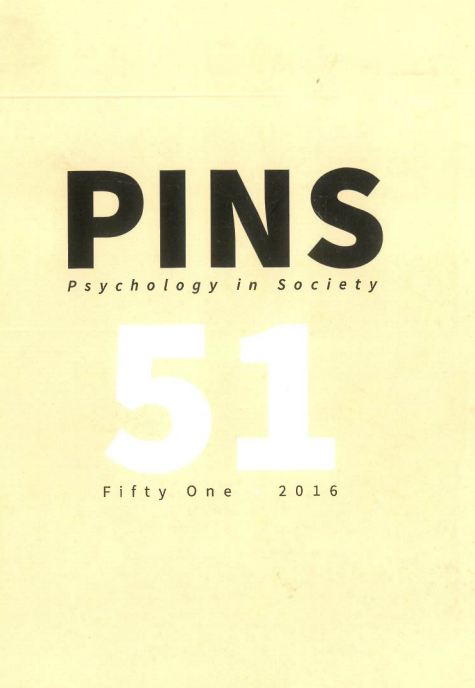Psychiatry and the DSM: Cracks in an epistemic empire
DOI:
https://doi.org/10.17159/2309-8708/2016/n51a3Keywords:
Psychiatry, psy-complex, Big Pharma, DSM, discursive, bio-medicalAbstract
In this article it is argued that the ontological integrity of psychiatry as a medical science remains deeply problematic. Psychiatric practice and attendant descriptive methodology in the form of the Diagnostic and Statistical Manual of Mental Disorders (DSM) have come under mounting scrutiny and criticism. Some of the most strident criticisms of psychiatric practice and theory have come from within its esteemed quarters (see Szasz, 1970), and have been reinvigorated through a recent publication by Allen Frances, the head of the DSM-IV Task Force. The arguments put forward by Frances are not new but carry added significance in that they stem from one of the professions most revered voices. Frances’ heretical attack on psychiatry’s “bible”, the DSM, offers the reader a glimpse into the operations taking place within the “inner sanctum” of psychiatry, the DSM Task Force. It is argued that psychiatry’s co-option by Big Pharma is reflective of a form hegemonic alignment that is consistent with the historical and political functioning of the psy-complex in modern bureaucratic society. This article provides a brief historical review of psychiatry’s deployment under various political regimes as well as an analysis of the evolution of the DSM and its growing role in the proliferation of psychopathology. The paper closes with an ironic resolve by offering a new discursive architecture for the profession of psychiatry.
Downloads
Downloads
Published
How to Cite
Issue
Section
License
This journal is an open access journal, and the authors' and journal should be properly acknowledged, when works are cited.
Authors may use the publishers version for teaching purposes, in books, theses, dissertations, conferences and conference papers.
A copy of the authors’ publishers version may also be hosted on the following websites:
- Non-commercial personal homepage or blog.
- Institutional webpage.
- Authors Institutional Repository.
The following notice should accompany such a posting on the website: “This is an electronic version of an article published in PINS, Volume XXX, number XXX, pages XXX–XXX”, DOI. Authors should also supply a hyperlink to the original paper or indicate where the original paper (http://www.journals.ac.za/index.php/pins) may be found.
Authors publishers version, affiliated with the Stellenbosch University will be automatically deposited in the University’s’ Institutional Repository SUNScholar.
Articles as a whole, may not be re-published with another journal.
The copyright of the article(s) lies with the author(s).
The copyright of the journal lies with PINS-psychology in Society.
The following license applies:
Attribution CC BY-NC-ND 4.0 - https://creativecommons.org/licenses/by-nc-nd/4.0/

